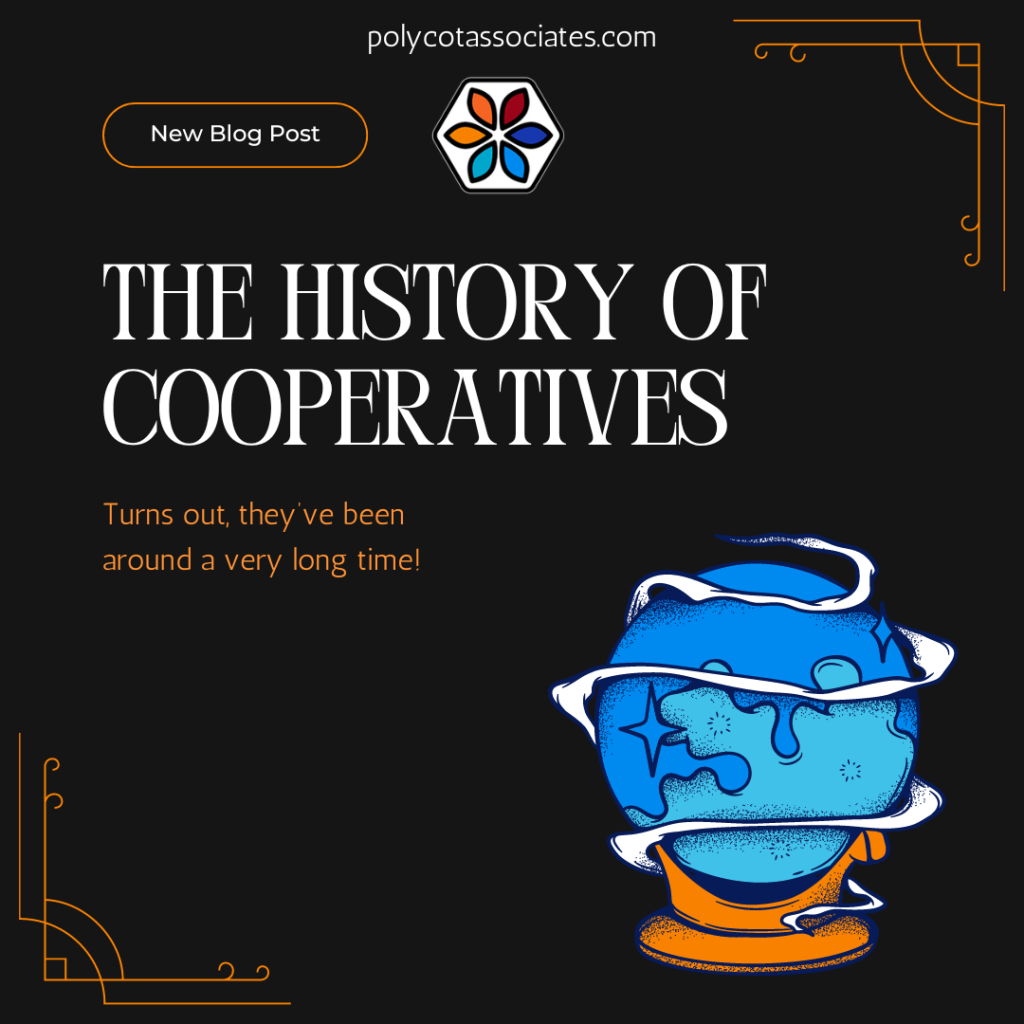
The cooperative business model may seem like a very modern concept that has only emerged in the past few decades. However, it’s been around far longer than that.
The concept of an organized group of people with a similar goal has been around since the dawn of human society. While hierarchies often form, many cultures throughout history have had a more ‘cooperative’ form of organizing and making decisions.
The first formally recognized cooperative businesses (As we have a recorded record of it being filed as a business organization) emerged initially in response to the booming industrial revolution that began in England and took the world by storm. Historians and scholars generally recognize the Rochdale pioneers in England as the first coop. This group formed in 1844 and created business principles to guide their work and establish a shop. They were heavily motivated by some of the downsides of the emergence of mass production.
After the Industrial Revolution, people who had previously been experts in their trades were losing sales to large industries that could produce less expensive (albeit often poor quality) products. These same large industries also began to rely on unfair and unsafe labor practices - particularly exploiting child labor. The life expectancy for laborers became only seventeen years old, the conditions were so poor, and there was no clear way at the time workers could fight for their rights.
This led to groups worldwide attempting to create organizations that could use ‘the old methods’ of production and detailed craftsmanship while providing economic security for all those involved.
Agricultural cooperatives gained popularity and expanded, especially during World War II, due to the rough times and conditions many farms were in. The U.S. government invested more heavily in cooperatives following the Great Depression.
The cooperative model played a significant role during the Civil Rights Movement, fostering a sense of community and support. Black-run coops flourished, providing a platform for empowerment and solidarity.
The principles formed in the 1800s may have been tweaked and updated over time, but they still greatly inform co-ops today. Polycot Associates follows many of these principles, supporting our members and contractors and committing to helping other organizations that seek to do good.
There are now over 3 million registered cooperatives worldwide, which is only growing.
Check out the International Cooperative Alliance to learn more about cooperatives and find support if you’re looking to form your own co-op.
You can also read more about our history, mission, and values!
- Log in to post comments

